Will the next pope be good for the Jews?
A look at a few of the frontrunners, and their statements on antisemitism, Israel and theology
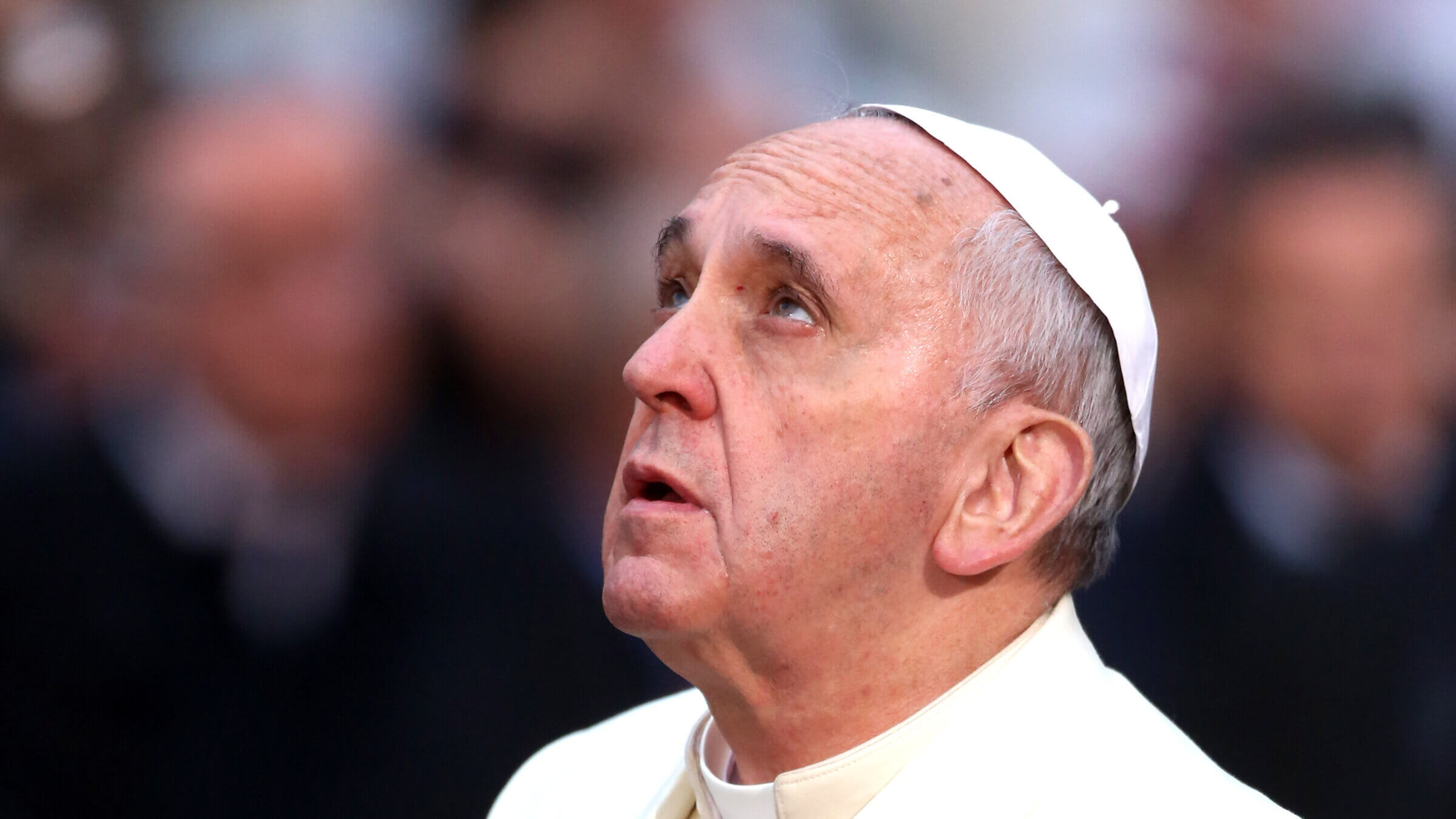
Pope Francis, praying. The pope died Monday, leaving the papacy in “sede vacante” as the world wonders who will ascend.
It’s hard to guess what direction the Catholic church might go after the death of Pope Francis Monday morning. Francis was a liberalizing changemaker in the church, speaking out — sometimes very sharply — about climate change, immigration and LGBTQ+ acceptance.
But he was divisive as well, cracking down on the growing “tradcath” movement so strictly that many worried he was going to cause a schism. Tradcaths (short for traditional Catholics), who are often characterized by adherence to the Latin Mass — which the church rejected in favor of mass performed in the local vernacular in the 1960s — along with strong opposition to divorce, abortion and same-sex marriage are growing in strength, particularly in the U.S.
This places the Vatican at something of a crossroads. Will the college of cardinals appoint a pope who continues in Francis’ liberal footsteps, expanding the universalism of the church? Or will they take note of the increasing political trend toward conservatism, and appoint a traditionalist who will solidify the church’s base? (Notably, Francis appointed 108 of the 135 cardinals eligible to vote.)
The incoming pope’s politics on antisemitism and the Middle East might also play a big role. The lists of likely candidates feature several cardinals who have made their name by speaking out about antisemitism, or through their involvement in Middle Eastern politics — topics Francis was also outspoken on, criticizing the destruction in Gaza and cautioning the world against antisemitism, including in his final papal address on Easter Sunday.
The cardinals voting for Francis’ successor will be completely secluded as they debate and cast their ballots for the next pope. Since no one is in the room for the debates or rounds of voting, oddsmaking is a tough game in the Vatican; most experts did not have Francis himself on their short list when he became pope.
Still, we can try to guess — will the next pope be good for the Jews?
Pierbattista Pizzaballa (age 60)
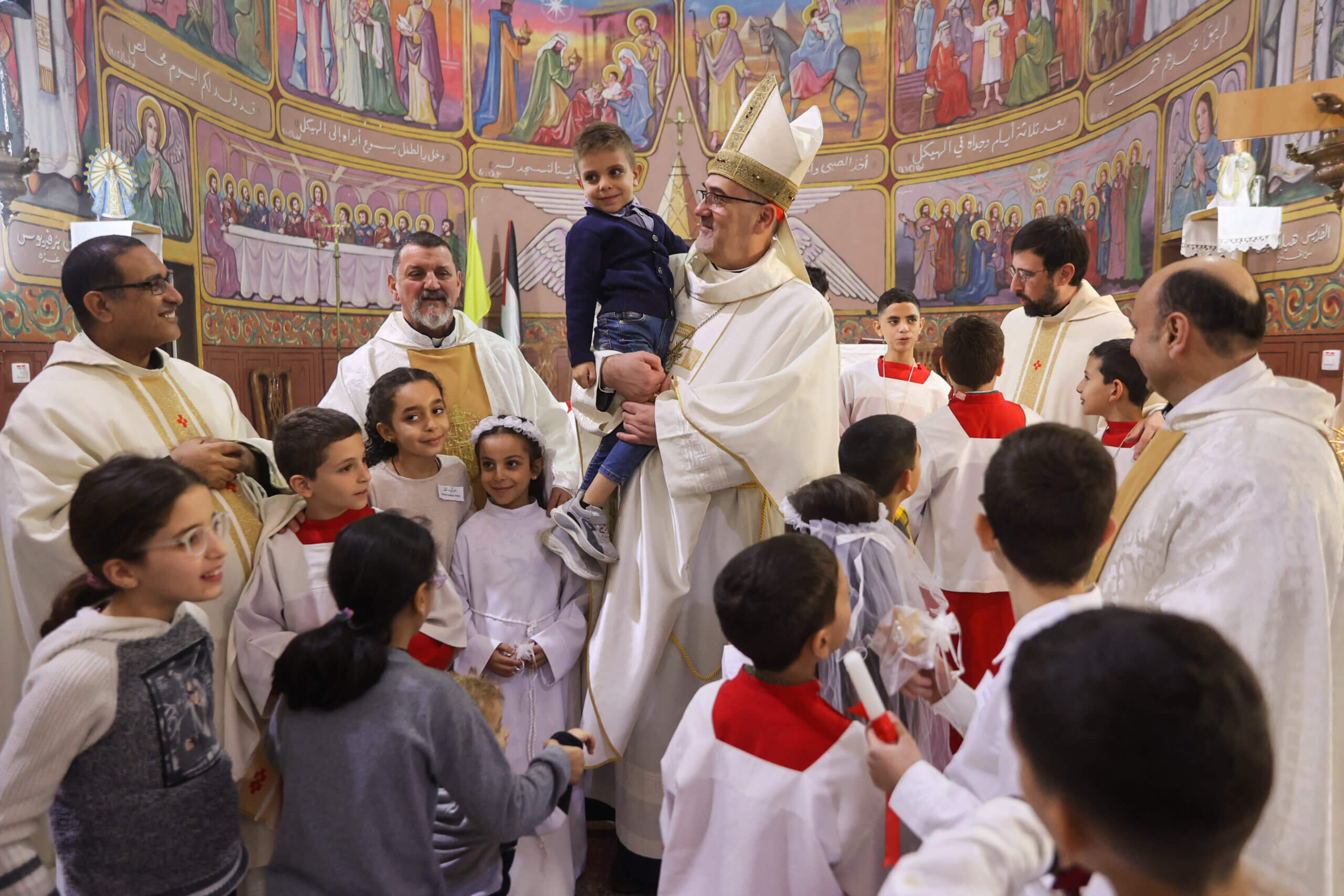
Pizzaballa is the Latin Patriarch of Jerusalem, Catholicism’s representative in the Holy Land. Francis elevated Pizzaballa to cardinal in 2023, making him eligible for the papacy, after naming him to several previous roles in Jerusalem.
While Pizzaballa is young for a pope, his experience navigating one of the holiest, and most difficult, roles in the Catholic church has made him perhaps the frontrunner for the Holy See. The political complexity of the Latin Patriarch lies not only in navigating the Israeli-Palestinian conflict — tending to a flock of largely Palestinians while operating within Israel — but also balancing the six denominations of Christianity that share control of the holy sites such as the Church of the Nativity in Bethlehem and the Church of the Sepulchre.
An Italian (how did you guess?), Pizzaballa is fluent in Hebrew and English, and has been working in Jerusalem as a Franciscan priest since 1990. For years, he was in charge of the pastoral care of Hebrew-speaking Catholics, and advised on Catholic-Jewish relationships for a papal council.
While it’s rumored that Pizzaballa’s familiarity with Judaism has caused his Arab clergy to view him with suspicion, his comparative neutrality — his predecessors as patriarch were Jordanian and, before him, Palestinian — has allowed the cardinal to work more fluidly with Israel. And he’s brought a similar balance to navigating internal Christian divisions; a representative from the Greek Orthodox Patriarch even attended his ordination as Latin patriarch as a gesture of friendship.
But this doesn’t mean Pizzaballa is apolitical. He has long spoken out against the wall dividing the West Bank and Jerusalem — but also criticized Palestinian leaders for constantly blaming Israel for all issues, even once quipping, “If the weather isn’t good, the cause is occupation.” After Oct. 7, Pizzaballa condemned Hamas’ brutality and offered himself as a hostage in exchange for kidnapped Israeli children. Yet he also called for an end to the Israel-Hamas war and to Israeli occupation, wearing a kaffiyeh while in Bethlehem on Christmas.
While both Palestinians and Israelis have criticized Pizzaballa’s statements for insufficient support, this, in a way, shows he has successfully managed to remain moderate in a tense position. Perhaps he can just as carefully navigate Vatican factions, where he is also perceived as a frustratingly neutral figure on divisive doctrinal questions.
Pietro Parolin (age 70)
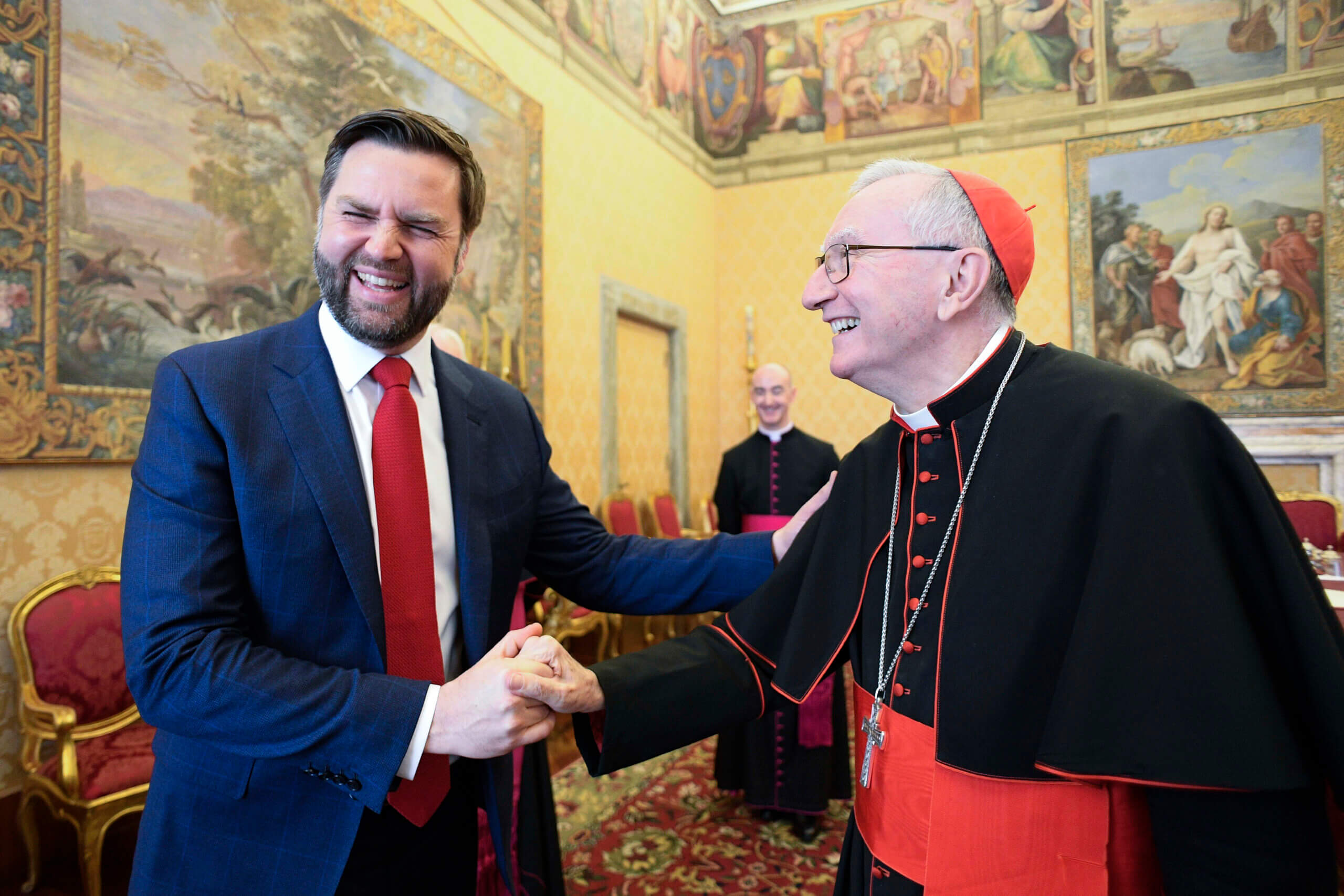
Parolin, the first person Francis made a cardinal, in 2014, is a consummate diplomat; he has served as the secretary of state for the Vatican for 12 years. As is the case with Pizzaballa, this diplomacy is his strength within the Vatican, and abroad.
Parolin served in Nigeria, Mexico and Venezuela before becoming Francis’ second-in-command. As secretary of state, he has been involved in delicate trips, including to North Korea and China, spoken to the United Nations about the urgency of climate change and was involved with the George W. Bush administration’s attempts to resurrect the Israeli-Palestinian peace talks.
Despite his closeness with Francis, Parolin is not as liberal as the previous pope. He has spoken against same-sex marriage and, broadly, against revolutionizing the church; he also blamed immigration for “deep malaise” in Europe.
Still, Parolin drew sharp criticism from the Israeli embassy to the Holy See after he condemned Israel’s military strikes in Gaza as a disproportionate response after Oct. 7. More recently, he slammed Israel for the “systemic violation of international law” during the war, specifically highlighting Israel’s strikes on humanitarian workers, and rebuked Trump’s plan to take control of Gaza.
Parolin is generally seen as a centrist bureaucrat — lauded for his diplomacy within the church, but lacking in the kind of compelling vision demanded of a pope. Yet when it comes to Israel, Parolin doesn’t hold his tongue.
Peter Erdo (age 72)
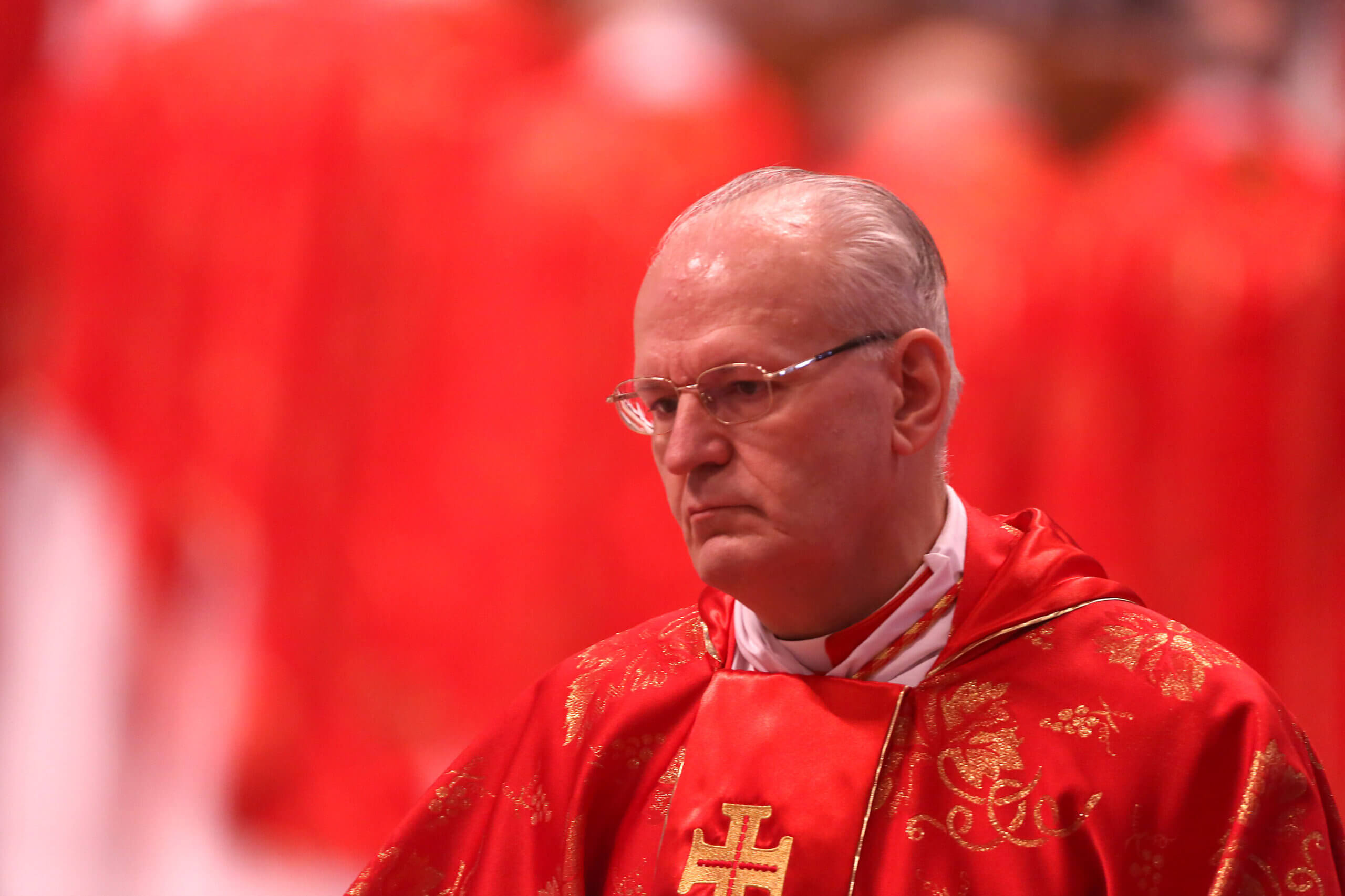
A Hungarian cardinal, Erdo is one of the most conservative contenders for the papacy. He does not believe that divorced Catholics should be eligible to receive communion, opposes Francis’ decision to allow Catholic priests to bless same-sex marriages and has compared churches sheltering refugees to human trafficking.
Though Erdo holds a hard line on most traditional Catholic law, Jewish groups in Hungary say he has been a valuable source of support during a time of rising antisemitism in the country. The cardinal regularly attends Holocaust memorial ceremonies and spoke at the World Jewish Congress in 2013 on the importance of religious freedom — an especially important point as political parties in Hungary stress the nation’s Christian roots.
But some of Erdo’s moves in support of Hungarian Jews are questionable. In 2018, the cardinal ordered the cancellation of a mass in memory of Miklós Horthy, a Hungarian statesman who allied with Hitler during World War II, slated to occur on Holocaust Remembrance Day. But he only did so at the last minute, after the mass became a public scandal. And Erdo is close with Hungarian president Viktor Orbán, who has stoked antisemitic conspiracies and endorsed Christian nationalism.
Erdo has been considered a top contender for the papacy in at least the last two vacancies — yet lost. Perhaps there’s a reason.
Jean Marc Aveline (age 66)
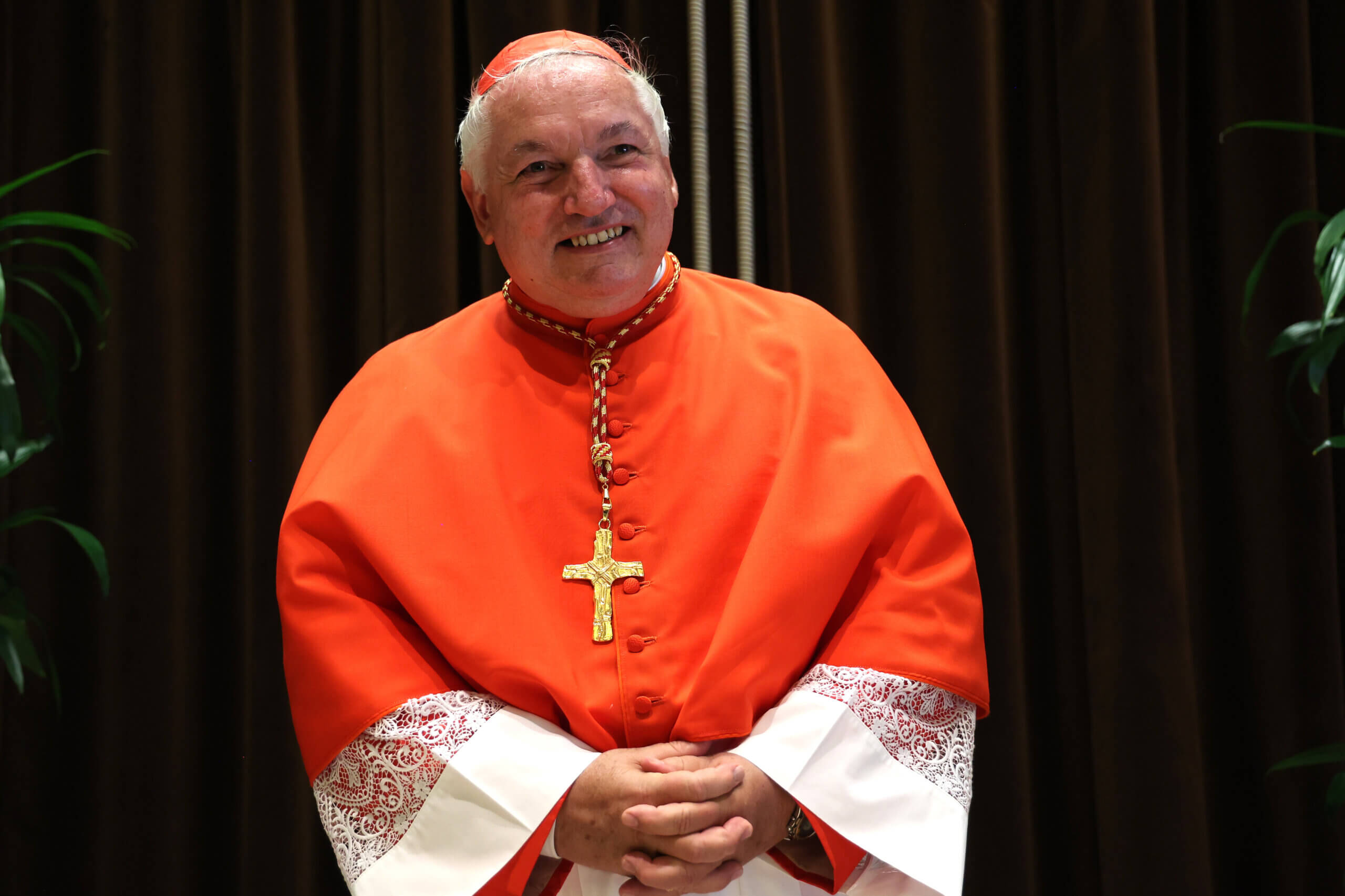
Aveline is widely considered to be a priest cut from the same cloth as Francis, emphasizing humility and immigration. He was born in French-occupied Algeria, and his family was forced out after the war.
The cardinal is posted in Marseille, France, a city with a large proportion of North African immigrants; Aveline has said that the city’s diversity inspired his interest in interreligious dialogue.
“The diversity of religions and the legitimate claim of each of them to the truth call into question the Christian faith,” he said in 2023 in response to a question about why the field interests him so much.
And, in a 2023 book, Dieu a Tant Aimé le Monde, Aveline also highlighted the link between Christianity and Judaism as one of his three main “realizations” detailed in the theological work. Judaism, he wrote, is uniquely special to Christians thanks to their shared past. Because of this, he continued, Judaism roots his interreligious focus.
But unlike many Christians, Aveline’s interest in Jews is not attached to the project of conversion; he has characterized pluralism as one of the holy “mysteries.” Instead, much of the cardinal’s interreligious work involves serving the needy alongside other religious leaders, such as handing out food with imams or rabbis.
However, Aveline’s lack of interest in conversion, along with his general respect for non-Christian religions, can make him unpopular in the church — some see his open-mindedness as evidence that he does not believe in the primacy of Jesus, a major break from Catholic dogma.
Matteo Zuppi (age 69)
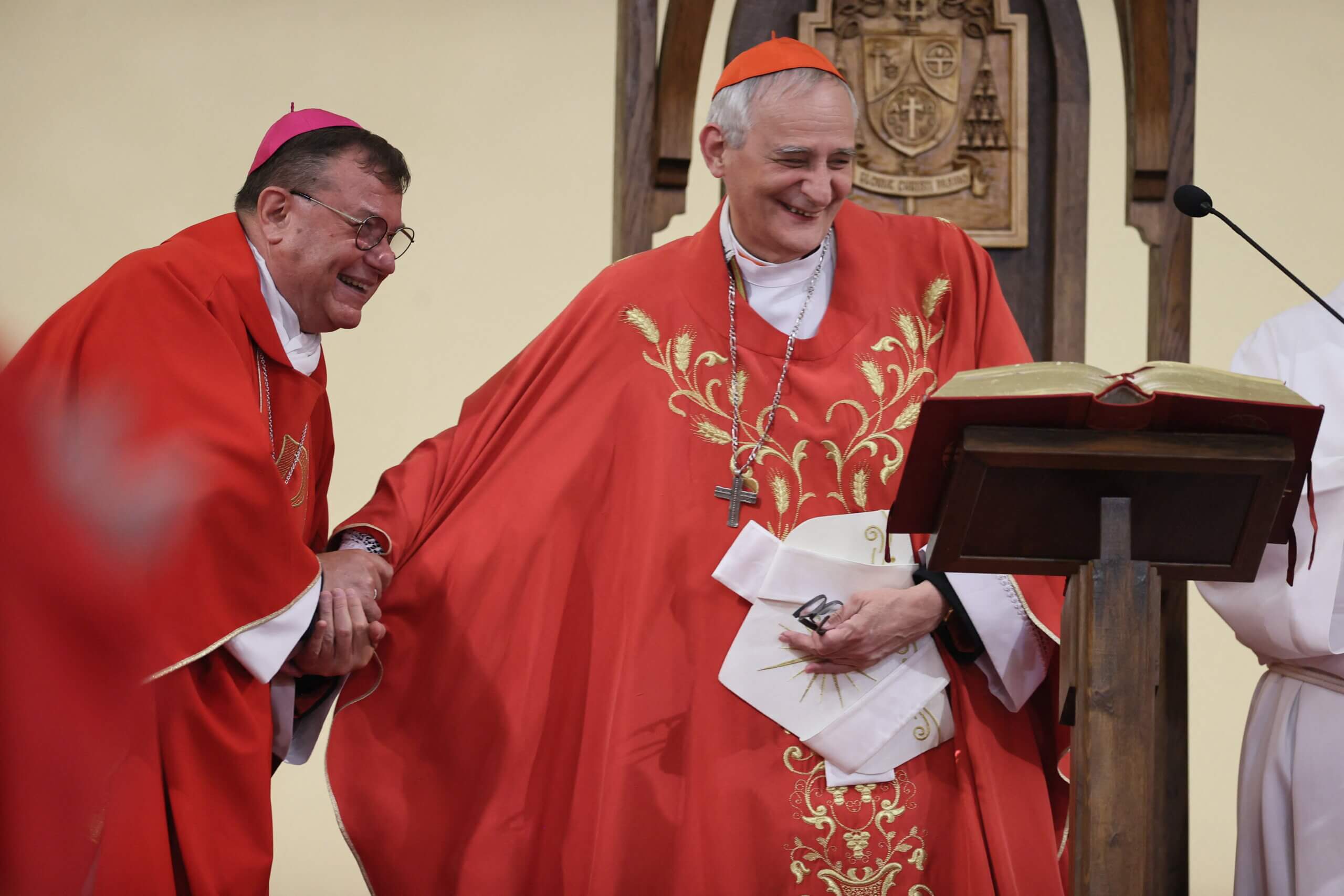
Zuppi, a cardinal from Bologna, was Francis’ peace envoy between Russia and Ukraine and has worked extensively to broker peace.
In that role, he has also been outspoken in the wake of Oct. 7 calling for peace, urging the need to understand the “root causes” of the Israeli-Palestinian conflict. He also called Hamas “the worst enemy of the Palestinian people.”
While it’s unlikely that the Middle East would be one of Zuppi’s main focuses, he has paid extra attention to the region, leading a group of Italian pilgrims to the Holy Land in 2024 to show support for Christians in the Middle East during wartime.
Other cardinals
Depending on which list you read, there are plenty of other cardinals who might become pope. (And technically, the next pope need not be a cardinal; any baptized man is eligible. But in practice, it will be a cardinal.)
Notably, thanks to Francis’ priorities, which included expanding the church in countries outside the Vatican’s usual reach of Europe and South America, there are several frontrunners of color. Fridolin Ambongo Besungu, a cardinal of the Democratic Republic of the Congo; Luis Antonio Gokim Tagle, a cardinal from the Philippines; and Charles Maung Bo of Myanmar have all appeared on multiple lists; any of them ascending to the papacy would represent a major shift in the church, which has never had a pope from outside Europe until Francis, who was from an Italian family in Argentina.
But even some Vatican insiders, such as Cardinal Mario Grech, the secretary of the Synod of Bishops — a major Vatican advisory body — could bring big change. Grech has advocated for increased women’s involvement in the church, though he has stopped short of expressing support for women’s ordination.
While the papacy seems like a largely symbolic role in the modern world, popes still oversee millions of Catholics worldwide. And in a Christian world, their views on Jews, and on politics, can influence everything — even if they’re no longer in charge of a global empire.
















